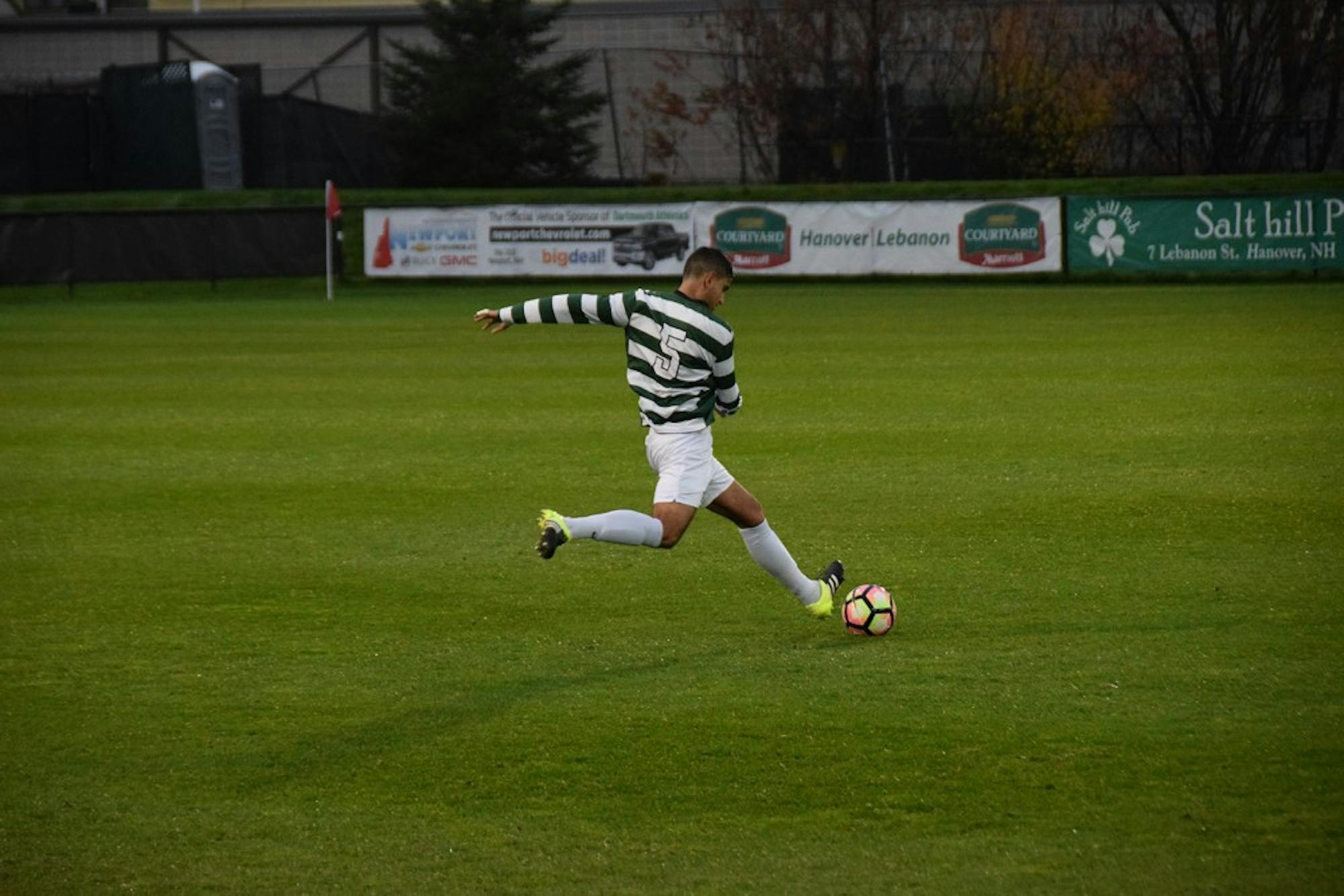After the discovery of published documents containing the ratings of women in explicitly sexual terms, Harvard University announced the cancellation of the men’s soccer team’s season on Thursday. The cancellations could have Championship implications.
Athletics director Robert L. Scalise wrote in an email to Harvard’s student athletes that the team-wide issue continued beyond 2012 into the current season.
On Oct. 24, The Harvard Crimson first reported that members of the 2012 Harvard men’s soccer team assessed freshmen recruits from the women’s soccer team in a nine-page document known as the “scouting report.”
The document, which is part of an annual team tradition, included photographs of the recruiting class and sexually explicit descriptions of each woman as well as numerical rankings. Until recently, the documents remained publicly accessible via the men’s Google Group account. According to The Crimson, one woman received the nickname “Gumbi” on the document because “her gum to tooth ratio is about 1 to 1.” The men also assigned sexual positions, which they perceived to be each woman’s “preferred position,” including “doggy style,” “the triple lindy” and “cowgirl,” The Crimson reported.
In response to The Crimson’s first story, six members of the Harvard’s 2012 women’s soccer team’s recruiting class wrote an op-ed entitled, “Stronger Together,” as a reaction to the “scouting report.” They wrote, “We feel hopeless because men who are supposed to be our brothers degrade us like this.” The women also offered their forgiveness to the men’s soccer team.
The cancellation means that Harvard’s men’s soccer will not play its remaining two games against Columbia University and the University of Pennsylvania. Although the Crimson currently sits atop the Ivy League standings, it will not be in contention for the Ivy League Championship or an NCAA Tournament berth, which is automatically given to the top team in the Ivy League.
The Big Green are currently tied for second place with Columbia, although the men beat the Lions 1-0 on Oct. 22. As both Columbia and Dartmouth sit at a 3-1-1 in second place, the treatment by the Ivy League of Harvard’s completed and forfeited games could have Championship implications. Harvard beat the Big Green over Homecoming weekend, but Dartmouth will at least be tied for League champion, no matter the League’s decision, if the Big Green wins both its remaining games. If it ties with Columbia for first place, the Big Green will receive the NCAA Tournament berth based on the Oct. 22 win over the Lions. If Dartmouth loses a game or more, the League’s treatment of Harvard’s forfeits will come into play.
According to the NCAA’s Statistics and Policy Guidelines, “An institution shall not, for statistical purposes, declare a forfeit for nonfulfillment of a contest. Such instances shall be considered as ‘no contest.’ In circumstances involving institutions from the same conference, the league office has the option to declare a forfeit win and loss for conference standings purposes only but this does not change an institution’s overall won-lost record. The ‘no contest’ declaration came into effect at the start of the 1977-78 season.”
Trevor Rutledge-Leverenz, assistant executive director for communications and championships for the Ivy League, said a meeting will be held on Friday to review the matter.
“There have been conversations, so we just want to do what is in the best interest of fairness of every other team in the League,” Rutledge-Leverenz said.
In 2013, Grambling State University forfeited a football game against Jackson State University. At the time, USA Today reported that the game did not count in the team’s official win-loss record. The Southwestern Athletic Conference declared the game a forfeit, awarding Jackson State a win within the conference. The NCAA leaves the determination of conference champions and league records to the individual conferences. Prior to the 2013 SWAC Championship game, which Jackson State lost, the team had an 8-1 conference record but only a 7-3 overall record. The NCAA, per its policy, regarded the forfeit as a no contest, while the conference regarded the forfeit as a win.




